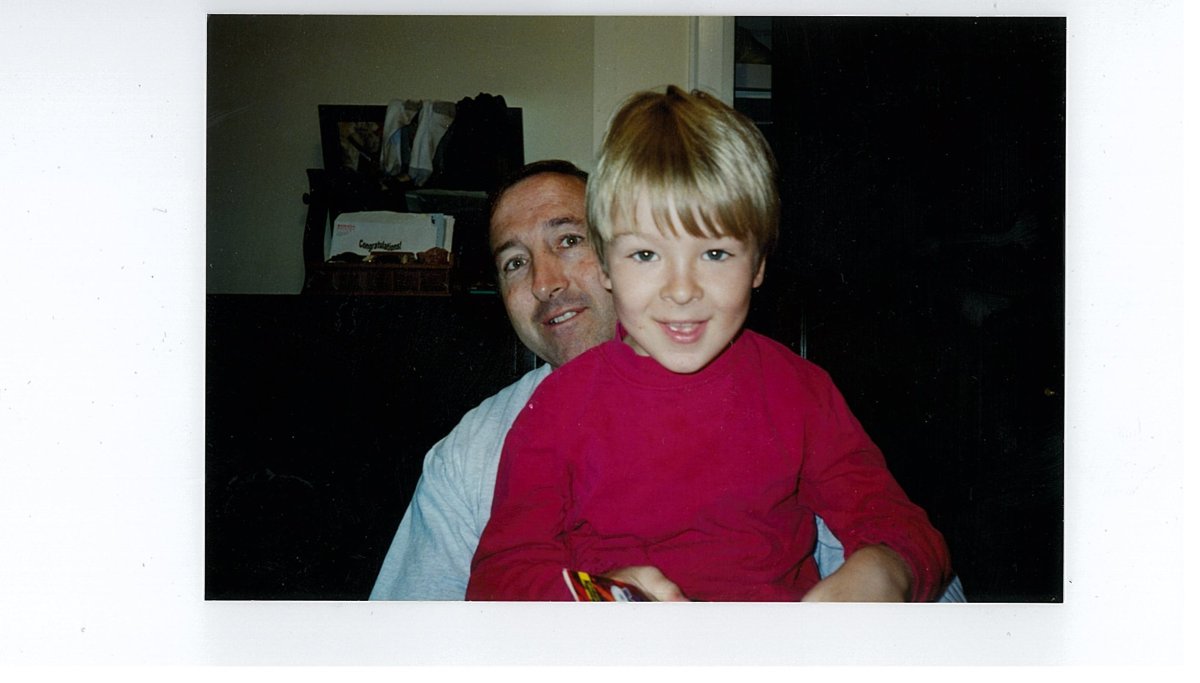David Carmichael is a father on a mission.

He’s on a cross-Canada speaking tour, publicly sharing his very private pain.
Carmichael is desperate to bring awareness about possibly-adverse reactions to medications after his own over-medication had tragic consequences.
“I couldn’t believe what I’d done,” Carmichael said. “To this day I still can’t believe I did it.”
In 2004, David Carmichael was charged with first-degree murder in the death of his 11-year-old son, Ian.
He believed that his healthy son was brain damaged and needed to die.
While on a father and son weekend in London, Ont., the two shared dinner together and then went to their hotel room to watch his favorite movie. But only one of them knew how it was all going to end.
“I was able to organize a plan. I had these delusions and my plan was to take his life,” Carmichael said.
He was taking an antidepressant prescribed by his doctor. He said he gave his son crushed up sleeping pills but it was having the opposite effect. And that’s when he decided to strangle his son.

“I thought Ian was in a living hell and thought he had brain damage, when it was just mild epilepsy. I thought he was going to kill my daughter and thought my wife is going to have a nervous breakdown, and he was going to hurt other children,” Carmichael said.
“You put that together and I thought, ‘I’ll go 25 years in prison to do the right thing for Ian and my family.'”

Get weekly health news
Carmichael was found not criminally responsible after being diagnosed as being in a psychotic state of depression at the time of his son’s death. He’s convinced his psychosis was triggered by the antidepressant.
“I know I was psychotic, there’s no question. I’ve been able to forgive myself knowing I was psychotic there was something wrong,” Carmichael said.
“If Ian understands it, I think he would forgive me. He knew I loved him,”
“Of course I have thought about what was going through his mind — I try not to think about that.”
Carmichael is sharing his story to audiences at a prescription awareness event on Tuesday, June 14 at the Central Public Library.
“Question doctors more about any drug you’re taking and research side effects, and report adverse reactions to Health Canada. Right now, 95 per cent of adverse reactions reported comes from pharmaceutical companies mandated to report them,” Carmichael said.
He is also in Calgary to attend an International conference on overdiagnosis prevention June 9-12, hosted by the University of Calgary’s Cumming School of Medicine.
Carmichael family photo
Dr. Eddy Lang helped organize the event.
“Prescriptions for anti-depressants are skyrocketing. You would also expect the number of people has to be going up as well if there is really an increase in the disease. But it’s not,” Dr. Lang said. “Suicides are down, admissions for mental health are not climbing.
“That’s our research and our signal there is clearly a problem going on.”
- ‘Deeply ashamed’: Canadian Medical Association apologizes for harms to Indigenous peoples
- Kate Middleton marks quiet return to work following cancer treatment
- Health Canada gives 1 year to remove BVO from drinks. What are the risks?
- Never heard of eastern equine encephalitis? Cases are ‘likely underreported’
Dr. Lang said the public needs to be engaged in the conversation around overdiagnosis and there needs to be a focus on patients who are truly in need.
“We need savvy consumers asking doctors when a test is ordered, ‘Do I really that test? Will I be harmed by having the test? Will it uncover something I would have never needed to know in the first place?’
“We see primary care crumbling. I work in the ER and our wait times are climbing, surgical waitlists are backlogged. Thirty per cent of what we do is considered to be wasteful or harmful,” Dr. Lang said.
Lynn Cunningham is an invited speaker at the conference. She lives in New York City and is the director and producer of a documentary highlighting the concerns about the role of psychiatric drugs in our society. Her film “Medicating Normal” sheds light on the issue.

“We interviewed hundreds of people we found on online support forums. What I learned was so much more than what we assume in the mainstream narrative,” Cunningham said.
She had a family member prescribed different kinds of medication for depression and everything changed.
“It became a cascade of medication. There were two antidepressants she was on and there was no need for two if the medication was actually working,” Cunningham said.
She said patients need to be their own advocates and research any pill before putting it in their body.
“What struck me is these drugs are taken by 1 in 5 people in the United States and can cause the very symptoms they are meant to alleviate. And that’s scary.”












Comments